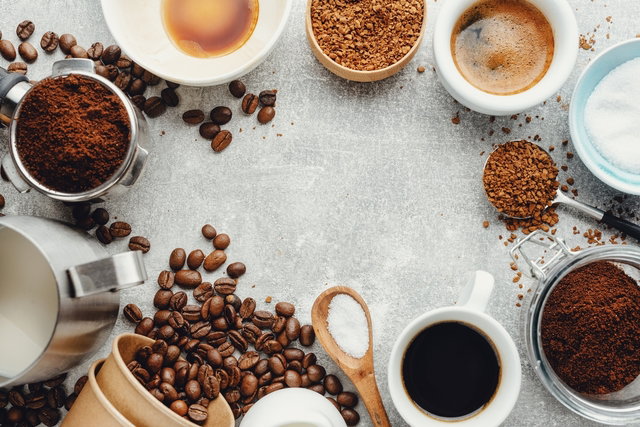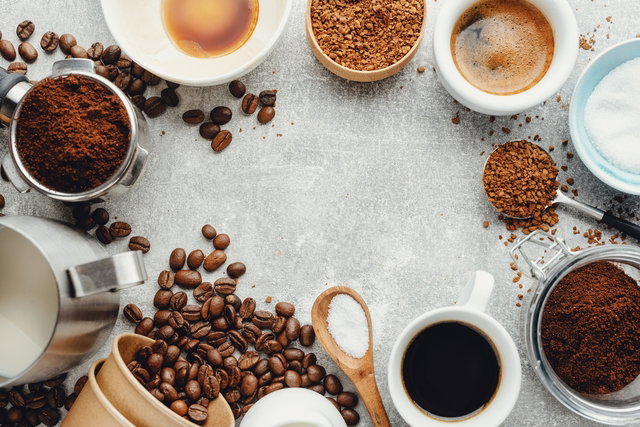Caffeine is a substance present in some foods, such as coffee, guarana, chocolate and green tea, which has an ergogenic and stimulating action, increasing focus and concentration, and improving physical performance.
Furthermore, caffeine also has thermogenic properties, accelerating metabolism and burning body fat, thus promoting weight loss.
Caffeine can also be found in supplements, in the form of capsules, powders and tablets, and is sold in supplement stores and pharmacies. However, caffeine should be consumed in moderation, as excess can cause headaches, insomnia, vomiting, diarrhea and seizures.

What is it for
Caffeine has stimulating, antioxidant, anti-inflammatory and ergogenic properties. Therefore, the main health benefits of caffeine are:
1. Improve mood
Caffeine increases the activity of the central nervous system, in addition to stimulating the release of serotonin in the brain, a neurotransmitter that helps regulate anxiety, increasing happiness and improving mood.
2. Prevent heart disease
Because it has antioxidant effects, caffeine improves the health of the arteries, facilitating blood circulation and preventing the emergence of diseases, such as heart attack and stroke. Understand how antioxidants help prevent heart disease.
3. Increase concentration
Caffeine blocks substances that cause tiredness and increases the release of adrenaline, norepinephrine, dopamine and serotonin in the body, neurotransmitters that increase concentration and reduce sleep.
4. Fight constipation
By stimulating the contraction of the stomach and intestine, caffeine stimulates the elimination of feces, thus helping to combat constipation.
5. Improve physical performance
Caffeine has an ergogenic effect, increasing the body’s energy production, as well as reducing tiredness and pain during physical exercise, thus improving physical performance.
6. Prevent the emergence of cancer
As it is an antioxidant, caffeine fights free radicals in the body, protecting the body’s healthy cells and preventing the emergence of some types of cancer, such as liver and skin cancer.
Caffeine makes you lose weight?
Caffeine has a thermogenic effect, being able to stimulate metabolism, increasing the burning of body fat and promoting weight loss. Furthermore, caffeine also helps control hunger temporarily, helping to reduce food intake and promoting weight loss.
However, it is important to highlight that to promote weight loss, caffeine should be consumed in moderation and associated with a healthy and varied diet and regular physical exercise. See how to go on a diet to lose weight.
List of foods rich in caffeine
See the table below for a list of foods rich in caffeine and the amount in each one:
Furthermore, caffeine can also be found in some medications to relieve pain, such as headaches, for example.
Recommended quantity
The maximum recommended amount of caffeine per day for adults is 400 mg of caffeine per day, which is approximately equivalent to 200 ml of espresso per day. Find out the recommended amount of caffeine for all ages.
Pregnant women, planning to become pregnant or breastfeeding, should consume a maximum of 200 mg of caffeine per day, the equivalent of 340 ml of brewed coffee.
Caffeine Supplements
Caffeine supplements can be used to relieve headaches or improve physical and mental health, for example, and can be found in capsules, tablets or powder, known as anhydrous caffeine or methylxanthine. Find out more about caffeine in capsules.
The recommended amount varies according to gender, age and individual goals, ranging from 100 to 400 mg per day. However, as caffeine is not recommended for some situations, the use of this supplement should only be under the guidance of a doctor.
Possible side effects
Ingesting more than 600 mg of caffeine per day can cause insomnia, dehydration, anxiety, stomach pain and nervousness in some people.
However, ingesting 1.2 g of caffeine or more at once, which would correspond to 7.2 liters of espresso, can cause convulsions, vomiting, increased heart rate, difficulty breathing, tremors and, in some cases, death.
Who should not consume
Children under 12 years of age and people with anxiety, arrhythmia, insomnia, reflux or stomach ulcers should avoid foods and supplements with caffeine.
Furthermore, people who use medications should talk to their doctor before consuming food or taking supplements containing caffeine, because some medications can interact with this substance, increasing or decreasing its effect.

Sign up for our newsletter and stay up to date with exclusive news
that can transform your routine!
Warning: Undefined array key "title" in /home/storelat/public_html/wp-content/plugins/link-whisper-premium/templates/frontend/related-posts.php on line 12
Warning: Undefined array key "title_tag" in /home/storelat/public_html/wp-content/plugins/link-whisper-premium/templates/frontend/related-posts.php on line 13




